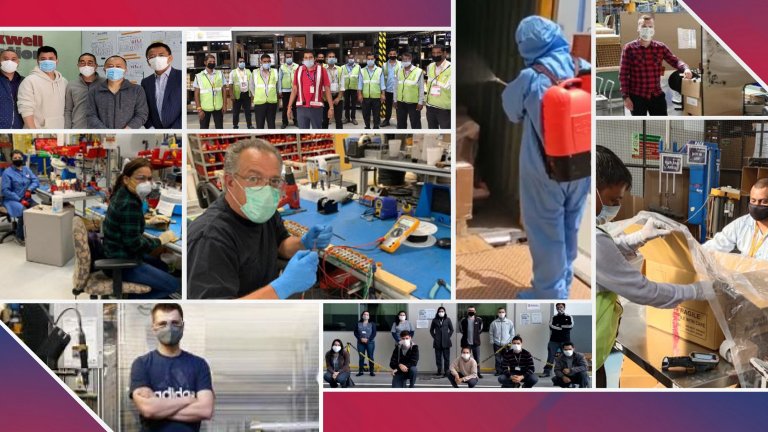There’s been an evident shift this year. Driven by necessity, things we used to do in person, from mundane tasks such as shopping, through to more valued moments such as catching up with friends and family, are now more frequently conducted in the virtual realm. The means necessary to make this digital transition have long been available, but what’s changed is the default expectation of how such tasks and interactions should be conducted.
It’s unsurprising that this shift has permeated many aspects of professional life, too. Face-to-face meetings are now web conferences. Annual events and workshops are now virtual seminars. The old status quo may not have disappeared entirely, but it now has permanent competition.
In this new reality, education and training are also undergoing a transformation. In-person learning is, in many cases, no longer practical for the foreseeable future, requiring a more digitally oriented approach to skills development in its place.
This transition has slowly been taking place for several years with growing usage of e-learning platforms and video-based courses as a way of increasing flexibility in learning while reducing cost. The trend has accelerated in the current circumstances as companies look to make sure the global situation doesn’t stand in the way of employee skills objectives.
Adapt to Thrive
We’re seeing this transformation first-hand in how we approach training at Rockwell Automation. For years, we have provided highly practical, in-person training to our customers, to help them upskill staff and get maximum benefit from the solutions we provide.
Despite the current situation, in-person training is still valuable and will be part of the way Rockwell Automation supports customers going forward. It’s important, however, to adapt to the restrictions and limitations posed across EMEA and embrace virtual learning, which will become an increasingly important way of learning over the coming years.
3 Key Features of Virtual Learning
The appeal of virtual learning is becoming more easily appreciated as its popularity grows. Now, with staff often working from remote locations and more accustomed to interacting and collaborating over video conferencing, more businesses are looking to virtual learning to fulfil their development needs.
There are three key reasons our customers are becoming more interested in Rockwell Automation’s virtual training capabilities, and why you should consider this approach for your own staff development.
1. Gain greater flexibility in how your staff learn
Virtual training allows you to overcome geographical limitations in order to bring the learning to your employees, rather than the reverse. In the current climate of travel limitations, this approach offers a safer approach with easier access to expert instructors. It also allows the employees to fit the sessions around their other priorities in order to avoid disruption.
2. Take an efficient approach to skills development
The more conventional, in-person training approach provided the benefit of allowing attendees to physically interact with workstations to get hands-on experience of using our solutions. We’ve been careful not to lose this important aspect in the virtual realm. Virtual attendees will have access to machines linked to real workstations, all visible through a live camera, to link the theoretical and practical sides of learning. They also have access to online/cloud-based resources that can be revisited post-session and used to build your organisation’s own library.
The typical feedback we receive is that this method offers a more efficient use of training investment, reduced training costs and a more environmentally friendly approach.
3. Customise learning to your staff’s needs
Every organisation has its own unique requirements for learning and upskilling. We provide on-demand learning so that the training is there exactly when you need it, customised to your employees’ current level of expertise. The boundless nature of virtual training also enables you to match employees and learning modules based on the suitability of the content, rather than having to compromise in delivering only courses available in close proximity to the employee.



